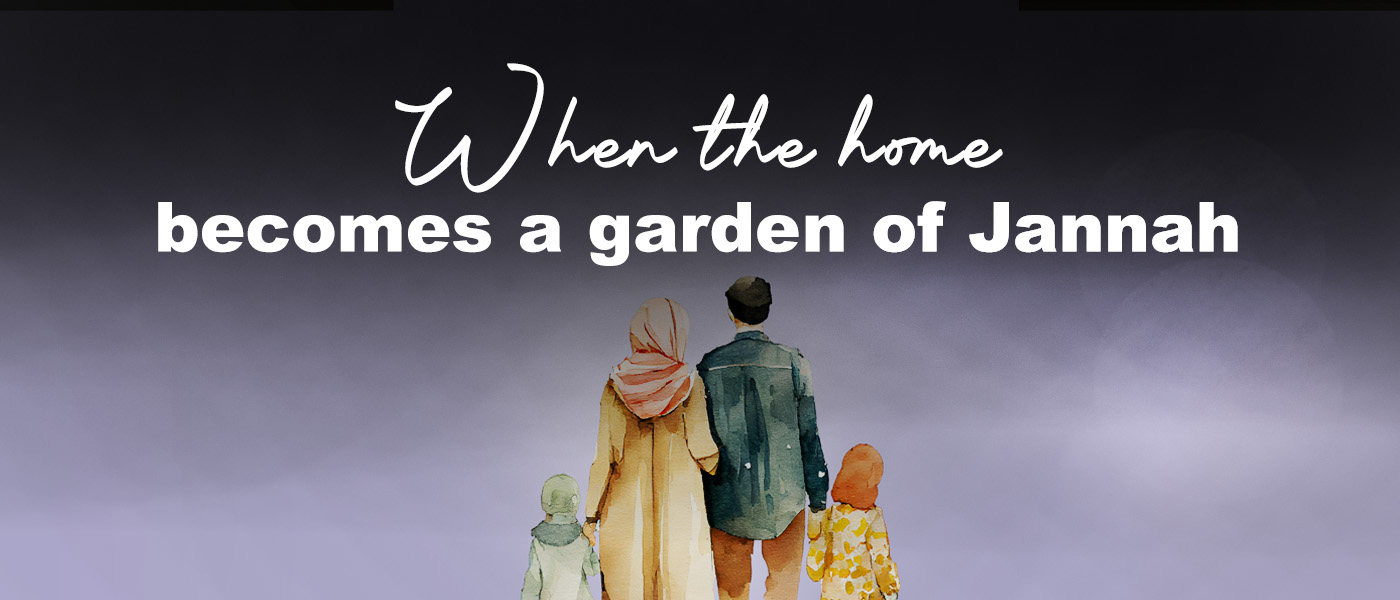In every language and culture, there is a word that melts the hardest of hearts and that is family. It evokes warmth, safety, and a sense of belonging. But, in Islam, we are taught that family is more than a small village of comfort, it is a sacred trust, a divine covenant, and a mirror of our relationship with Allah (SWT).
Our homes are not just buildings, they are also the first madrasah, the first masjid and, for many children, the first glimpse of Allah (SWT)’s mercy on earth.
As we mark International Day of Families, we pause to remind ourselves of Allah (SWT)’s timeless guidance about what it means to live, love, and lead as a family.
The Quran introduces us to some of the most powerful human stories through families. The story of Prophet Nuh (AS) and his son. Of Prophet Ibrahim (AS) and his father, and then later his son. Of Musa (AS), adopted into Pharaoh’s palace yet nurtured by his mother under divine protection. Even the blessed arrival of Prophet Isa (AS) is wrapped in the dignity and pain of a mother raising her son alone in the face of a judgmental society.
The family is the crucible of faith. It is where love is tested, forgiveness is practiced, and character is formed.
And, of course, the greatest family in human history is the beloved family of our Prophet Muhammad (SAW). His family is the blueprint for how we should walk through the doors of our homes.
Our Prophet (SAW) was the world’s most compassionate husband, the most attentive father, and the most tender-hearted grandfather. He would kneel beside a crying child; he would mend his own clothes; he would prolong his sujood if his grandchildren would climb on his back and, in general, he would never rush a moment of joy for them. This is the father who would stand when his daughter Fatima bint Muhammad would enter a room, kiss her on her forehead, call her the “joy of the heart,” and allow her to sit where he was sitting.
In a society that often neglects emotions behind a facade of strength, the Prophet (SAW) taught us that true manhood and leadership is rooted in gentleness and emotional intelligence.
In a hadith, the Prophet (SAW) has said, “The best of you are those who are best to their families, and I am the best among you to my family.” (Sunan ibn Majah, 1977)
How we treat our families is the most accurate measure of our adherence to and understanding of Islam.
However, many of us also come from homes where the environment is not exactly healthy and Islamic. Some carry silent scars in their hearts. They come from environments where yelling is the norm, or perhaps they didn’t have a fatherly figure or affection. But Islam doesn’t demand perfection. It asks us for sincerity, patience, and growth.
Allah (SWT) says to us in The Quran, “And We have commanded people to honor their parents. Their mothers bore them through hardship upon hardship, and their weaning takes two years. So be grateful to Me and your parents. To Me is the final return.” (The Clear Quran®, 31:14)
Above all else, to our young Muslim readers, we know the world is noisy, and sometimes your parents may not understand your journey. But, one day, you will wish you could rewind life and hear their voices again. Allah (SWT) has placed barakah in their dua. There is a special light in obeying them, even when it’s hard. And remember, loving your family doesn’t mean you always agree. It means you stay soft when the world tries to harden you. It means you choose kindness over ego.
And to the parents—yes, your children may be your legacy, but they are also our test, our dua and possibly, our only ticket to Paradise. After all, the Prophet (SAW) has said in another hadith, “Every one of you is a shepherd and every one of you is responsible for his flock.” (Sahih Bukhari)
While we must raise our children to be academically excellent, we must also ensure they are lovers of Allah (SWT), reciters of The Quran, defenders of the weak, and humble in the night when others sleep. Achievement of these characteristics starts with love.
So, how do we strengthen the family? Here are some tips we can advise:
- Pray together (even one jama’ah a day at home can soften hearts).
- Eat together (the Prophet (SAW) advised us to eat together and invoke Allah (SWT)’s name; it brings barakah).
- Speak well (the tone we use at home is also a form of dawah).
- Forgive quickly (the one who forgives most easily is the most free).
When mistakes happen, and they certainly will, repent together. Make your home a place where tawbah is natural and dua flows like water.
If your family members are still alive and with you, do something extra special for them when you see them. Visit your parents if they are far away from you. Kiss your mother’s hand and gift her with something that she will love. Speak to your siblings if you haven’t spoken to them in a while. Hug your sister, especially if she’s having a rough day. Spend some time with your grandmother. Indeed, blessed are those believers whose elderly are still alive and with them. Play with your children, they enjoy it when you spend time with them.
Because, one day, these people will be gone. And you will wish for one more chance to say, “I love you for the sake of Allah (SWT).”
And, if your family is broken, then rebuild it with ihsan. Begin the healing. Begin with dua. Because healing is also an act of worship when done for the sake of Allah (SWT).


